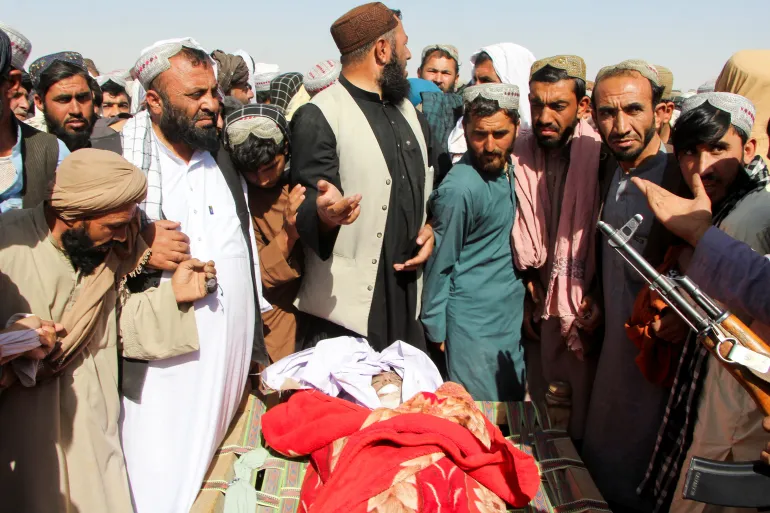
Kandahar, Afghanistan / Islamabad, Pakistan – The United Nations has appealed for a permanent ceasefire between Pakistan and Afghanistan after deadly border clashes left dozens dead and hundreds injured. The fragile truce, which took effect on Wednesday, has brought temporary calm to one of the most volatile frontiers in South Asia.
UN Calls for End to Cross-Border Violence
In a statement on Thursday, the UN Assistance Mission in Afghanistan (UNAMA) welcomed the ceasefire agreement between the Afghan Taliban administration and Pakistan’s military, urging both sides to uphold international law and prevent further civilian casualties.
“We call on all parties to bring a lasting end to hostilities to protect civilians and prevent further loss of life,” UNAMA said.
According to UNAMA, “credible reports” confirm significant civilian deaths and injuries, including women and children, particularly in the Spin Boldak district of Kandahar Province.
Dozens Killed in Spin Boldak Before Ceasefire Took Effect
Just hours before the ceasefire began, heavy fighting erupted along the border. Karimullah Zubair Agha, the director of public health in Spin Boldak, reported that at least 40 civilians were killed and 170 wounded during the clashes.
“We have 170 wounded and 40 killed, all civilians,” Agha told AFP.
UNAMA later verified that at least 17 civilians were confirmed dead and as many as 346 others were injured in the latest border violence.
The clashes have been described as the worst fighting between Pakistan and Afghanistan since the Taliban seized power in 2021, following the withdrawal of US forces from Kabul.
Causes of the Border Conflict
Tensions flared after Pakistan launched airstrikes inside Afghanistan, including near Kabul, targeting alleged Tehreek-e-Taliban Pakistan (TTP) hideouts. Islamabad accused the Afghan Taliban of harboring armed groups that have carried out deadly attacks inside Pakistan.
In response, Afghan forces fired back, claiming violations of Afghan territory and accusing Pakistan of spreading misinformation and provoking instability along the frontier.
The Taliban administration in Kabul rejected Pakistan’s allegations, instead accusing Islamabad of supporting ISIL (ISIS)-linked militants and undermining Afghanistan’s sovereignty.
Pakistan’s Military Operations and TTP Activity
Despite the ceasefire, Pakistan’s military reported fresh skirmishes in Khyber Pakhtunkhwa Province, claiming to have foiled an attempted attack by TTP militants seeking to exploit the truce.
Military officials stated that dozens of TTP fighters were killed in retaliatory operations. However, these claims have not been independently verified.
Humanitarian Concerns: Refugees Caught in the Crossfire
As the temporary ceasefire holds, Pakistan has moved to shut down Afghan refugee camps within its borders. This has sparked outrage among human rights organizations and the UN Refugee Agency (UNHCR).
Reporting from the Torkham Crossing, Al Jazeera’s Kamal Hyder noted that many Afghan refugees fear forced deportation after decades of living in Pakistan.
“People say they have been living here for decades, and their livelihoods are at stake,” Hyder said.
The UNHCR warned that expelling two million Afghan refugees within seven days could trigger a major humanitarian crisis and push thousands into poverty and displacement once again.
Hopes for a Lasting Truce
Local residents in border areas remain skeptical about the durability of the ceasefire. With decades of mistrust and frequent clashes, both nations face significant challenges in restoring diplomatic and military confidence.
“Everybody is still hoping that the conflict will end and that the two sides will be able to resolve their key issues,” Hyder added.
For now, the UN continues to push for de-escalation, calling on both nations to prioritize dialogue and humanitarian protection. The situation remains tense but cautiously stable, as communities on both sides pray the violence does not reignite.


Leave a Reply